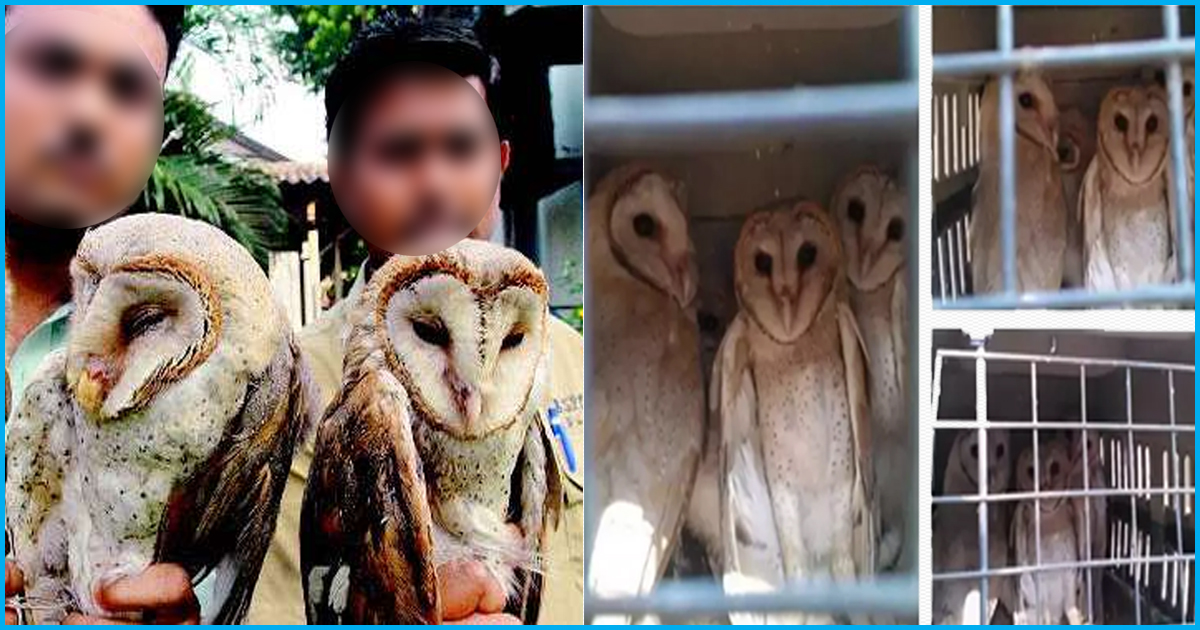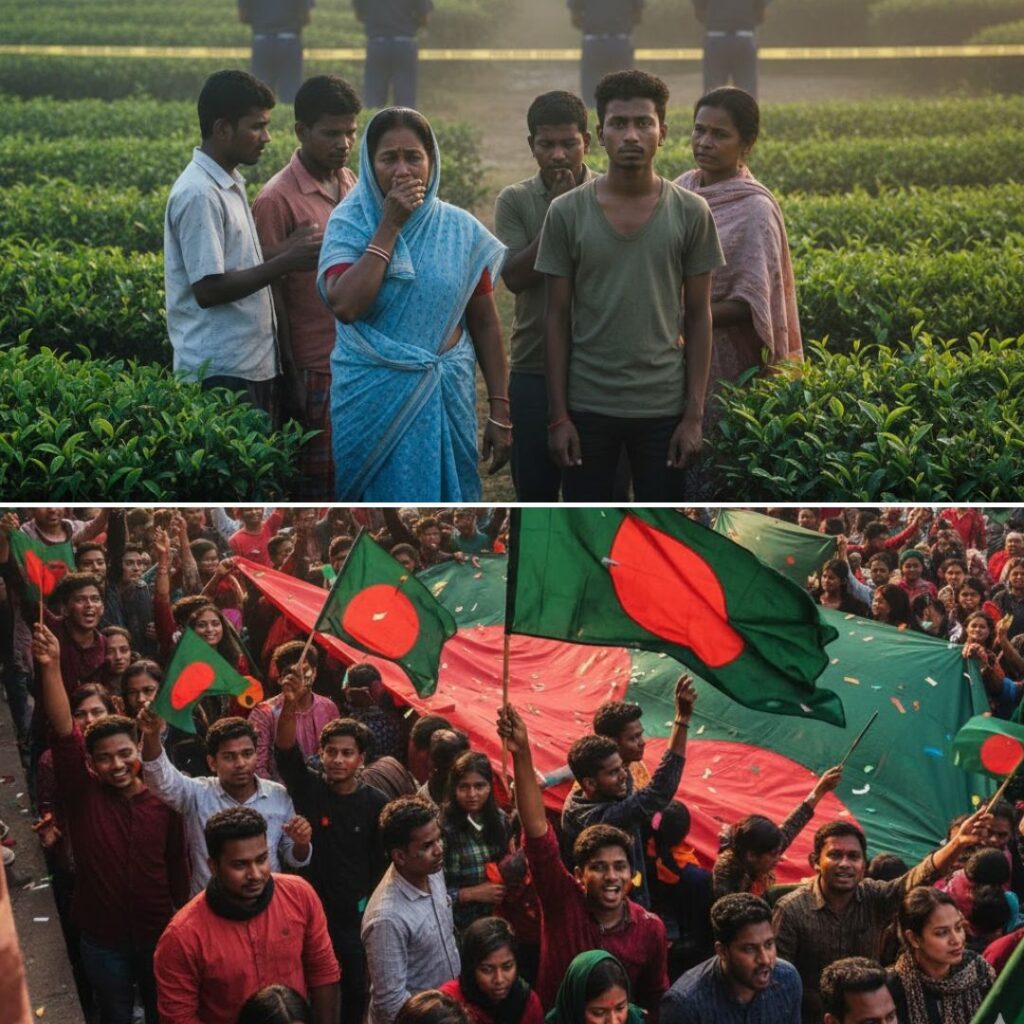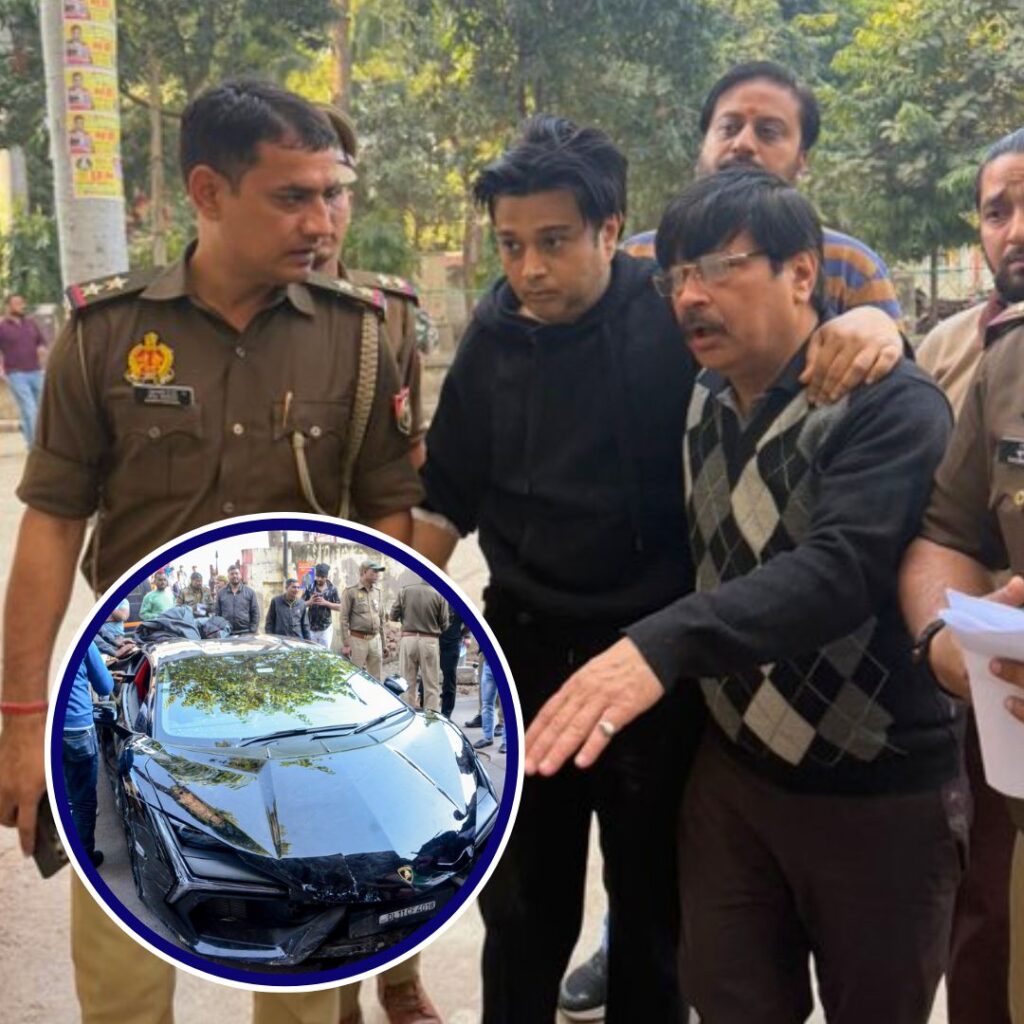With just a few days to go for the country’s biggest festival, Diwali, Indian owl species are going to face a cruel fate. Even though we term Diwali to be the festival of lights, these are dark times for countless owls whose lives are endangered at the hands of poachers.
Indian Owls sacrificed during Diwali
While the illicit trade of these protected bird species goes on throughout the year, it is during Diwali that the business is at its peak. This is mostly because ignorant people, fueled by misguided beliefs and superstitions carry out the age-old practice of sacrificing owls during this time. The Logical Indian spoke to Delhi-based Ornithologist and author Bikram Grewal who shed some light on the bird trade across the country.
He said that throughout the year, these birds are sought for their body parts like skulls, talons, beaks, feathers and even blood. Driven mostly by irrational myths, tantriks or black magic practitioners use the parts to make medicines, he informed. However, during Diwali, the bird, owing to its status as the ‘vaahan’ or vehicle of Goddess Lakshmi, is sacrificed with the belief that it will compel the Goddess to remain in their homes and bring good luck all year long.
According to Grewal and other wildlife activists, Agra serves as one of the biggest hubs of the illegal trade of this bird in India. He said, “Around the Agra region, more specifically Korai-Karavili village is where rampant sale and purchase of the owls go on.” Of course, being illegal, the activities are carried out in secrecy to keep the authorities and wildlife activists away from the crime. All Indian Owl species are protected under the Wildlife Protection Act of 1972. The Forest Owlet is protected under Schedule I of the Act while all others are under Schedule IV. Reportedly, some Indian Owl species also find their places in the Red List of threatened or endangered species of the International Union for Conservation of Nature (IUCN).
Clandestine sale of Owls in India
Over the years, there have been several news reports which highlight the plight of these birds. Earlier this year, there were news reports of police in Karnataka arresting two people for selling owls. The Assam Tribune had in 2017 reported that some species of Indian Owls which are highly prized in both domestic and international markets are trafficked from Assam to markets in Delhi on the occasion of Diwali. The news report cites two Owl species – the Brown Fish Owl and Indian Scoops Owl as being most trafficked.
Moreover, while the traffickers pay a meagre amount of money for both juvenile and adult Owls, to the customers, they are sold at a hefty price which can range anywhere between Rs 2000 for a bird to Rs 40,000, informed Grewal. The quality of life for these trafficked birds are needless to say, subpar. Life inside tiny cramped cages is horrible, to say the least. Sometimes, the bird’s eyes are also sewed together and bones broken.
Difficult to rehabilitate
Owing to the secret nature of the trade, it is difficult to get data on the number of Owls which are sacrificed or killed each year, however, the numbers are large. Jayanti Kallam, Executive Director of Avian and Reptile Rehabilitation Centre (ARRC) in Bengaluru while talking to The Logical Indian said that out of the 30 Owl species found in India, the Indian Eagle Owl is the most sought-after compared to other kinds. Her organisation even issued an appeal on social media to make people aware of the issue.

ARRC/ Instagram
Talking about the rehabilitation of the trafficked owls, she said that the rehabilitation centres can only spring into action when they are informed of such owl trade in and around the cities by others. “No one is actively working for the protection of the owls,” she said.
Even though the Wildlife Crime Control Bureau, a statutory multi-disciplinary body established under the Ministry of Environment and Forests deploys police force and other volunteers to keep a check on the crime in illegal markets in India, owing to the clandestine nature of the job, the task becomes almost impossible, she added.
The Logical Indian Take
The entire superstition surrounding the practice does not even make sense. Sacrificing an owl is supposed to keep Lakshmi at home, or is it supposed to force Lakshmi into staying? There is a difference. People need to be sensitised about these irrational beliefs and spare the innocent lives of the voiceless creatures. Owls are a symbol of wisdom and where is our wisdom when we mercilessly kill the bird just for apparent personal gain?
These birds are threatened and need protection. People also need education and awareness. The Logical Indian condemns this practice and urges authorities to take strict action the culprits found guilty.
Also Read: Citizens Protest In Delhi, Mumbai, UK, USA & Roar #LetAvniLive To Save A Tigress From Being Killed











